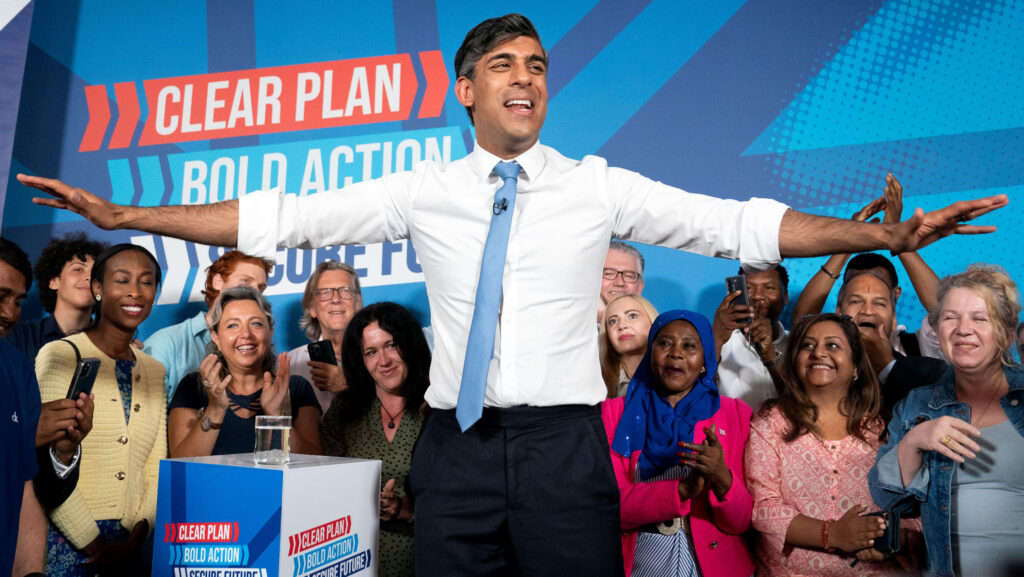Editor’s View: Here’s to better squabbles in next parliament
 Rishi Sunak © PA Images/Alamy Stock Photo
Rishi Sunak © PA Images/Alamy Stock Photo Which has been more of a damp squib to date, the election campaign or the quality of the football at the Euros?
Both have teams gripped by a fear of losing, rather than a desire to make many positive moves that give folk something to cheer about.
Scotland are already back home, which is just as well as the temperature is heating up in every part of Germany except the English fan zone, where the team have been given a very chilly reception.
See also: Managing regenerative farming: Options for support and advice
With FW’s 90th anniversary last week, I’ve had my nose in the archive and spent a happy half hour looking at how the editors of yesteryear covered major world events.
Amazingly, not a single mention was made of England’s World Cup win in 1966. They really were made of sterner stuff in that era.
Perhaps the view was taken at the time that the coverage was so saturated elsewhere that even acknowledging its existence would further weary its readership.
And it seems you are just as tired of the 2024 election, if this week’s letter writer Alex Pressley is anything to go by.
He chides us for even allowing politicians room to squabble on the previous week’s Letters page, and I have to say he’s got a point.
Their words offer precious little extra information to allow those still mulling over where to mark their ballot paper, to make a more informed choice.
(I should point out FW did also have an in-depth article looking at the manifesto pledges on agriculture from the main parties, and there are further details this week on their intentions on planning and land use).
While politicians are never going to please everyone with their words, it is their choice to send in 300 words devoted to petty squabbling rather than partake in a battle of higher-minded ideas.
And that choice – seen across the media in turgid soundbites that sends folk scrambling to change channels – tells you something about what they think of us and also the limitations of their ambitions.
Dramatic changes do not only flow from the ballot box of course, and my prediction for the next five years is that the retailers will have a more significant impact on influencing how farmers produce food than government.
Witness the decision this month by Tesco to join other leading retailers in imposing a 20% lower stocking rate on its chicken producers – without being prodded by legislation.
And we appear to be only in the foothills of a slew of green-tinged schemes being enthusiastically adopted by traders and end-users of cereals, some of which farmers may even enjoy being a part of.
These are just a few examples of the top-down approach, however much many firms harp on about it being a “partnership”.
At Groundswell this week, the enthusiasm for farmer-led change from the bottom up remained undimmed.
Where these approaches clash remains the most interesting part of the debate about how we protect the profitability of farming, maintain food production, and preserve the environment.
Definitely a squabble that’s worth having.
